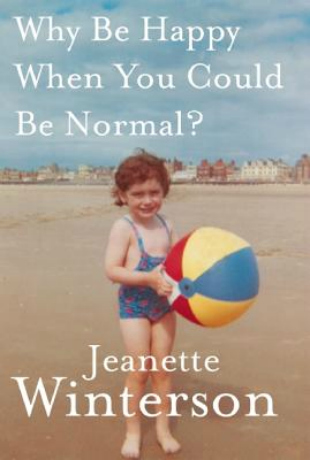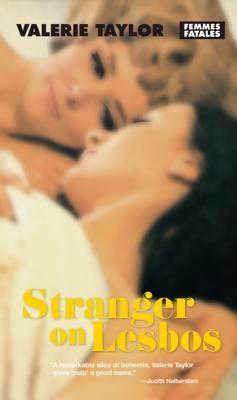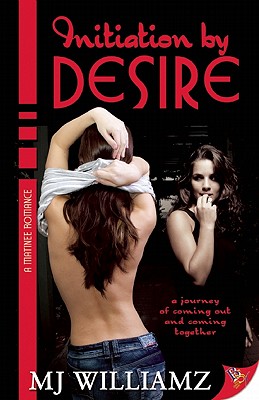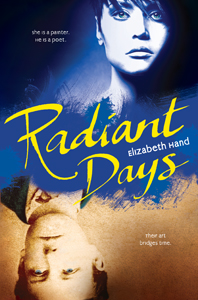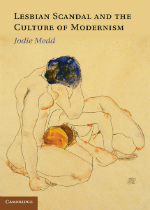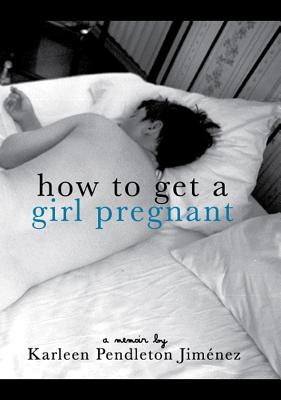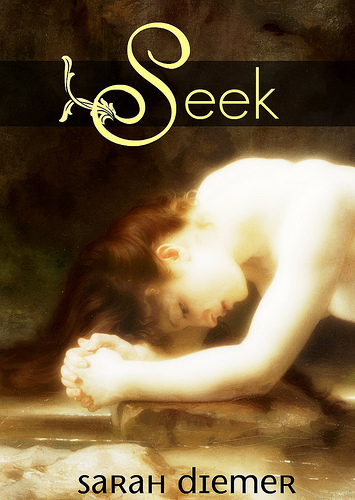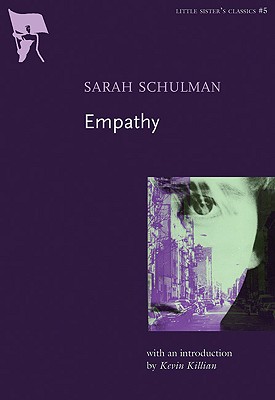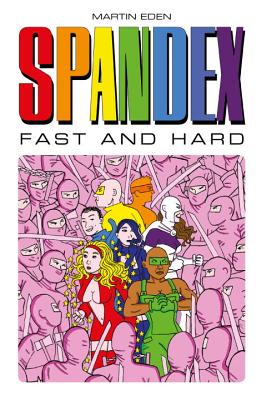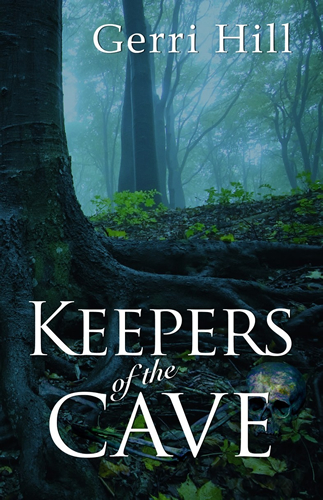This book is so good. Like emily m danforth, Ellis Avery has managed to shoot near the top of my list of authors to watch out for after only reading one book of hers. The Last Nude is a beautiful, evocative story of a bittersweet romance between a painter and a model during 1920s Paris. I say that I don’t usually like historical fiction, but after reading Sarah Waters’s books and The Last Nude, I may have to change my mind. Avery based her story around the biographical fact that Tamara de Lempicka had a brief relationship with her model, Rafaela, and produces six paintings of her during that time. As well, the last painting Lempicka was working on before she died was Beautiful Rafela. Avery imagines their whole relationship in exquisite detail. 1920s Paris is carefully rendered, and there are cameos from 1920s celebrities, authors, and fellow queer women, such as Gertrude Stein. The famous French bookstore Shakespeare & Company also plays a role. The Last Nude is also just written beautifully. Rafaela is a very compelling narrator. She’s only 17 and falls head over heels for Tamara–she is passionate and very likeable. The Last Nude also convinced me to seek out Lempicka’s paintings, to provide context to the story. I highly recommend The Last Nude, and I can’t wait to pick up Avery’s previous novel, The Teahouse Fire.
Month: August 2012
Casey reviews Why Be Happy When You Could Be Normal? by Jeanette Winterson
I finished Jeanette Winterson’s 2011 memoir, Why Be Happy When You Could Be Normal? completely stunned. I don’t think I’ve ever read anything so emotionally raw and affecting, yet so beautifully expressed and wise. It’s the kind of book you need to read with a pen in hand, either to underline your favourite parts, or to jot down quotations in a notebook. There are so many gorgeous passages, it is almost unbearable. In many ways, Why Be Happy is a memoir that should be a difficult read; Winterson’s childhood, and, indeed, much of her adulthood, are “ghastly” as a British reviewer puts it aptly in British slang. The title of the memoir, for example, is the response Winterson’s mother gave her when she came out to her and explained that being with a woman simply made her happy. But I still came away from the book with the strangest feeling of reassurance: a feeling that despite everything—the kinds of things that have happened in Winterson’s life, and the kinds of things that have happened in mine—it was all going to be okay. An overwhelming feeling of optimism overcame me as I finished the book, which is strange considering Winterson’s life is far from a cheerful tale. It’s a testament to her power as a writer—and the power of writing—that this memoir ultimately leaves the reader, at least this reader, in such a state of euphoric hope.
Let me backtrack a bit: Jeanette Winterson, for anyone unfamiliar with her, is a British lesbian writer most well-known for her debut novel Oranges Are Not the Only Fruit, which was also made into a BBC movie. Oranges is a kind of fictionalization of her childhood and coming out; the main character, also named Jeanette, is a child adopted by Pentecostal evangelists in the industrial North of England, which is true of Winterson’s life as well. Also like the author, Jeanette falls in love with a girl when she’s a teenager and this explodes her already fraught relationship with her mother. Why Be Happy is both a response to and a continuation of Oranges; it’s Winterson recounting and then dealing with the repercussions of her abusive childhood and her “relentless brooding mountain range of [a] mother,” as these early experiences ripple through her career as a writer, her troubled adult relationships, and her eventual search for her birth mother. The memoir is startlingly honest, even about ugly aspects of herself: she writes, for example, that “There are people who could never commit murder. I am not one of those people.” She also writes straight-forwardly, with no self-pity, of her suicide attempt in 2008.
It’s this quality of raw honesty, I think, that also results in stunningly beautiful, brilliant passages such as
What you are pursuing is meaning—a meaningful life. There’s the hap—the fate, the draw that is yours, and it isn’t fixed, but changing the course of the stream, or dealing new cards, whatever metaphor you want to use—that’s going to take a lot of energy. There are times when it will go so wrong that you will barely be alive, and times when you realize that being barely alive, on your own terms, is better than living a bloated half-life on someone else’s terms.
And:
Listen, we are human beings. Listen, we are inclined to love. Love is there, but we need to be taught how. We want to stand upright, we want to walk, but someone needs to hold our hand and balance us a bit, and guide us a bit, and scoop us up when we fall. Listen, we fall. Love is there but we have to learn it—and its shapes and its possibilities. I taught myself to stand on my own two feet, but I could not teach myself how to love. We have a capacity for language. We have a capacity for love. We need other people to release those capacities.
I would recommend starting with Oranges if you’ve never read anything by Winterson and I also highly recommend Written on the Body, a tale of a genderless narrator gleefully, ecstatically, obsessively, and self-destructively in love with a married woman. I would definitely advise reading a few of Winterson’s other books before reading Why Be Happy. It’s not that the memoir wouldn’t be meaningful or enjoyable without being familiar with her work, but the significance and power of the memoir won’t be fully accessible unless you have a sense of who Winterson is—especially from the semi-autobiographical Oranges. She has offered up a book that, as the memoir itself is so preoccupied with, confirms the absolute human need for literature and art—that, in her words, “A tough life needs a tough language—and that is what poetry is. That is what literature offers—a language powerful enough to say it how it is. It isn’t a hiding place. It is a finding place.” Why Be Happy When You Could Be Normal? is certainly a place to find yourself in.
Link Round Up: July 26-August 2
AfterEllen posted Kate Kane gets a happy ending in “Batwoman #11” and Your New School Library: Graphic Novel Edition #1.
Autostraddle posted Read A F*cking Book: “Stranger On Lesbos” Reminds Us How Far We’ve Come and What Hasn’t Changed.
Casey the Canadian Lesbrarian posted Happy Vancouver Pride! Queerotica with Kate Bornstein, Amber Dawn, Hiromi Goto, and Elaine Miller.
Elisa posted LGBT Ebook and Print Releases July, 2012 and Rainbow Awards: Current Submissions (121-130).
Femslash4Fans posted School’s In For Summer – Novelist Julie Anne Peters.
Good Lesbian Books posted Transgender Women in Lesbian Relationships in Fiction.
Lambda Literary posted
- Live to Tell: The Life & Legacy of Black Queer Literature Beyond the New Millennium
- Publishing Ins and Outs: Advice on Writing for Publication and Getting Published
- a mini link round up
- Chana Wilson: The Power and Fury of the Past
- New in August: Dale Peck, Bryan Borland, David M. Halperin, Radclyffe, and Lyndsey D’Arcangelo
The Outer Alliance posted OA Podcast #22: Elizabeth Hand.
Over the Rainbow Books posted Hot July 2012 Nominations.
Queeries posted Public Sins / Private Desires: Tracing Lesbian Lives in the Archives, 1950–1980.
Shelly’s LGBT Book Review Blog posted Gay and Lesbian Kindle Fiction Updates July 29th, 2012.
Sistahs On the Shelf posted Girl in the Mirror Giveaway.
Women and Words posted Interview with author Lynette Mae! Plus GIVEAWAY!
“What comes After Stonewall?”, and article on gay and lesbian bookstores, was posted at Ottawa Citizen.
“What makes a ‘gay novel?'” was posted by Bonjour, Cass!
Sarah Diemer posted SEEK: A Lesbian Fantasy Short Story–RELEASE DAY! and On LOVE DEVOURS: My First Anthology!
Annameekee Hesik posted
- Day One: LLF LGBT Emerging Writer’s Retreat
- Day Two: LLF LGBT Emerging Writer’s Retreat
- Days 3 and 4 of the LLF LGBT Writer’s Retreat!
Catherine Lundoff posted Projects and things and…harassment in fandom and Diversicon 20 schedule.
Sarah Schulman will be presenting at Witness to a Lost Generation: An evening with Sarah Schulman.
Rachel Spangler posted Search Terms.
Oranges and Lemons by Liz Bugg was reviewed at Good Lesbian Books.
One in Every Crowd by Ivan E Coyote was reviewed at Vancouver Weekly.
The Dirt Chronicles by Kristyn Dunnion was reviewed by Casey the Canadian Lesbrarian.
Spandex: Fast and Hard by Martin Eden was reviewed at Lambda Literary.
Main Brides by Gail Scott was reviewed by Casey the Canadian Lesbrarian.
The Warrior’s Path by Catherine M. Wilson was reviewed at Good Lesbian Books.
Anna M. reviews Keepers of the Cave by Gerri Hill
Gerri Hill, known for writing romances and “straight” procedural mysteries, dips a toe into paranormal waters with Keepers of the Cave (published July 2012), in which FBI agents Paige Riley and CJ Johnston are sent undercover to a girls’ reform school, situated adjacent to a creepy community of cult-like family members. The community of Hoganville is under suspicion in several cases of missing people dating back over fifty years, but the enclave is populated only by Hogans, most of whom are completely off the grid. To get as close as possible to their suspects, Paige and CJ find themselves feigning newly-bedded lesbian bliss and posing as a gym teacher and a security guard at the nearby all-girls’ school, also connected to the Hogans. Unearthly howls disturb the peace at night, and the Hogans on staff at the school are . . . a bit odd, to say the least. As Paige and CJ struggle with their attraction (and memories of a one-night encounter months ago), trouble in Hoganville escalates. Will they uncover the mystery of the caves before it’s too late?
Hill takes a lot of the mystery out of her mystery early on by alternating chapters from Paige and CJ’s viewpoints with those from the cult leader “Mother Hogan” and Fiona Hogan, a sympathetic figure who teaches at the school and suffers the horrific consequences of interaction with the creature who inhabits the caves. Mother Hogan’s powers are otherworldly, and her relationship with the creature and the flock of Hogans is definitely creepy. The plot suffers a bit from genre confusion–as if it can’t decide whether to fully commit to mystery or romance, and transitions between them are sometimes choppy–but the sexual tension is realistic (even if the circumstances of the plot are somewhat unbelievable) and the “bad guy” perspectives were an interesting twist. However, Hill also throws in viewpoint sections from Paige and CJ’s male partners, as well as another male FBI agent, when the story might have benefited from more streamlined perspectives. Despite this, Keepers of the Cave is a quick and engaging read.


